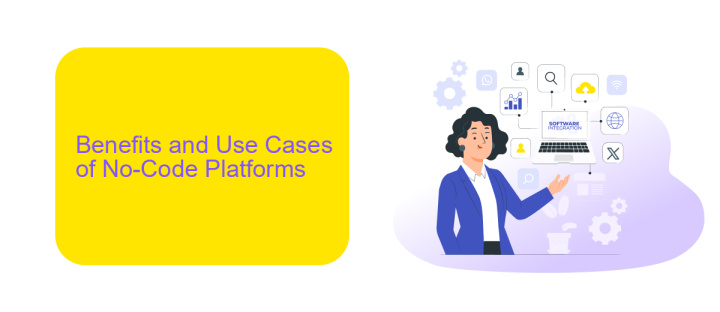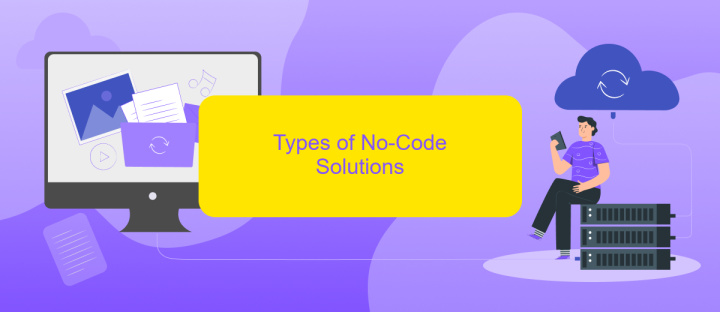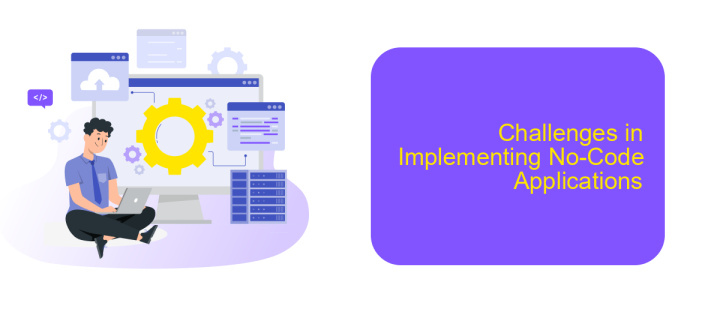No-Code Solutions
In today's fast-paced digital landscape, no-code solutions are revolutionizing the way businesses develop and deploy applications. By enabling users to create complex software without writing a single line of code, these platforms empower non-technical professionals to innovate rapidly and cost-effectively. This article explores the benefits, challenges, and future potential of no-code technology in transforming modern industries.
Introduction: Defining No-Code Solutions
No-code solutions have revolutionized the way businesses and individuals approach software development. By eliminating the need for traditional coding skills, these platforms empower users to create applications, automate workflows, and integrate services with ease. This democratization of technology allows more people to bring their ideas to life without the steep learning curve associated with programming languages.
- Ease of Use: Intuitive drag-and-drop interfaces
- Cost-Effective: Reduces the need for expensive developer resources
- Speed: Rapid prototyping and deployment
- Flexibility: Adaptable to various business needs
- Integration: Seamless connection with third-party services
One notable example of a no-code integration tool is ApiX-Drive. This platform allows users to effortlessly connect different applications and automate data transfer between them. By simplifying these processes, ApiX-Drive enables businesses to streamline operations and focus on growth. Overall, no-code solutions are transforming the landscape of digital innovation, making it more accessible and efficient for everyone.
Benefits and Use Cases of No-Code Platforms

No-code platforms offer numerous benefits, making them an attractive option for businesses of all sizes. One significant advantage is the speed of development; these platforms allow users to create and deploy applications much faster than traditional coding methods. This rapid development cycle can lead to quicker time-to-market, giving businesses a competitive edge. Additionally, no-code solutions reduce costs associated with hiring specialized developers, as they enable non-technical staff to build and maintain applications. This democratization of application development fosters innovation and empowers teams to solve problems independently.
No-code platforms are versatile and can be used in various scenarios, from creating simple websites to developing complex business applications. For example, they are ideal for automating workflows and integrating different services. Tools like ApiX-Drive facilitate seamless integration between various applications, allowing businesses to streamline operations without extensive coding knowledge. Moreover, no-code platforms are excellent for prototyping and testing ideas quickly, enabling businesses to iterate and refine their solutions efficiently. Overall, no-code solutions provide flexibility, cost savings, and the ability to adapt swiftly to changing market demands.
Types of No-Code Solutions

No-code solutions have revolutionized the way businesses and individuals approach software development, making it accessible to those without technical expertise. These platforms enable users to create applications, websites, and workflows through intuitive interfaces and drag-and-drop functionalities.
- Website Builders: Tools like Wix, Squarespace, and Webflow allow users to design and publish professional websites without writing a single line of code.
- App Builders: Platforms such as Adalo and Glide facilitate the creation of mobile and web applications with ease, catering to various business needs.
- Automation Tools: Services like Zapier and ApiX-Drive enable users to automate workflows by integrating different apps and services, enhancing productivity without complex coding.
- Database Management: Airtable and Notion offer powerful no-code solutions for managing data, creating custom databases, and collaborating in real-time.
These diverse no-code solutions empower users to bring their ideas to life quickly and efficiently, democratizing technology and fostering innovation across various industries. Whether you're building a website, an app, or automating processes, no-code platforms provide the tools needed to succeed.
Challenges in Implementing No-Code Applications

Implementing no-code applications can be a revolutionary step for businesses, but it comes with its own set of challenges. One of the primary concerns is the scalability of these solutions. As businesses grow, no-code platforms may struggle to handle increased data loads and complex workflows.
Another significant challenge is the customization limitations. While no-code platforms offer a wide range of functionalities, they may not be able to meet highly specific business requirements. This can lead to a reliance on third-party integrations and additional tools to fill the gaps.
- Scalability Issues: No-code platforms may not efficiently manage large-scale operations.
- Customization Constraints: Limited ability to tailor solutions to unique business needs.
- Integration Challenges: Difficulty in seamlessly integrating with existing systems.
- Security Concerns: Ensuring data protection and compliance can be complex.
Services like ApiX-Drive can help mitigate some of these challenges by providing robust integration capabilities, allowing businesses to connect various applications and automate workflows more effectively. However, businesses must carefully evaluate their needs and the limitations of no-code platforms before fully committing to them.
- Automate the work of an online store or landing
- Empower through integration
- Don't spend money on programmers and integrators
- Save time by automating routine tasks
Future of No-Code Development
The future of no-code development is incredibly promising, as it continues to democratize software creation and empower a wider range of individuals to build complex applications without deep programming knowledge. As technology advances, no-code platforms are expected to become even more sophisticated, offering enhanced capabilities and integrations that rival traditional coding methods. This evolution will enable businesses to accelerate their digital transformation efforts, reduce costs, and foster innovation across various industries.
One significant trend in the future of no-code development is the seamless integration of various services and tools. Platforms like ApiX-Drive are at the forefront of this movement, providing users with the ability to easily connect different applications and automate workflows. By simplifying the integration process, no-code solutions will enable businesses to create more cohesive and efficient systems, ultimately leading to improved productivity and better user experiences. As these platforms continue to evolve, they will undoubtedly play a critical role in shaping the future of software development.
FAQ
What are No-Code Solutions?
Who can benefit from No-Code Solutions?
How secure are No-Code Solutions?
Can No-Code Solutions handle complex workflows and integrations?
Are No-Code Solutions scalable?
Apix-Drive is a simple and efficient system connector that will help you automate routine tasks and optimize business processes. You can save time and money, direct these resources to more important purposes. Test ApiX-Drive and make sure that this tool will relieve your employees and after 5 minutes of settings your business will start working faster.


